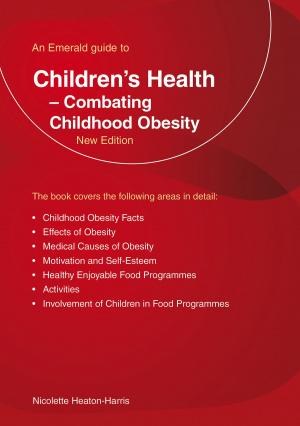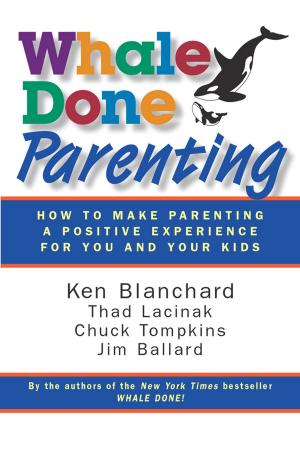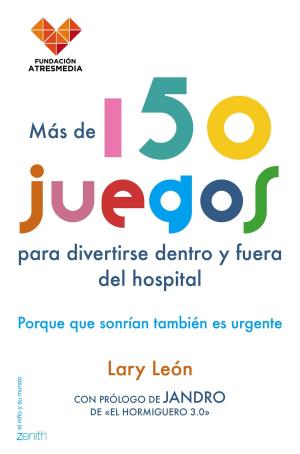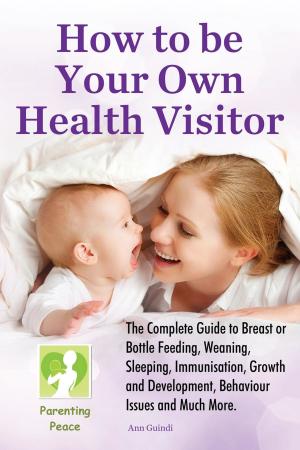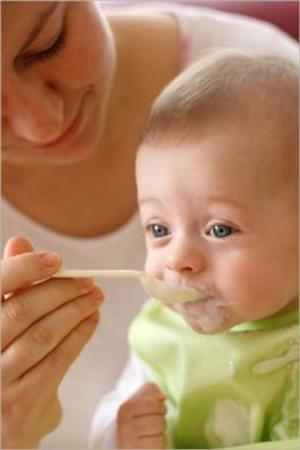Baby Poop
What Your Pediatrician May Not Tell You
Nonfiction, Family & Relationships, Parenting, Child Care| Author: | Linda F. Palmer | ISBN: | 9780975317037 |
| Publisher: | Sunny Lane Press | Publication: | May 20, 2015 |
| Imprint: | Baby Reference | Language: | English |
| Author: | Linda F. Palmer |
| ISBN: | 9780975317037 |
| Publisher: | Sunny Lane Press |
| Publication: | May 20, 2015 |
| Imprint: | Baby Reference |
| Language: | English |
Eat, sleep, and poop. That’s what babies do. Every parent has challenges and questions about these activities and there is an abundance of information on eating and sleeping, but poop? The appearance and behavior of a child’s stools can give more information about the child’s health than any other factor. From an award-winning, three-time author—and a mother—Baby Poop brings the hard-to-find facts that equip parents to help their babies be happier and healthier, head off the occasional dire situation, and to optimize their child’s lifelong health. Yes—poop. Parents spend inordinate amounts of time worrying about what goes into their babies. All the while, what shows up in baby’s diapers provides tremendous cues about baby’s digestion, immune functioning, and overall wellness. We don’t get explanations or even pointing fingers from babies: We get smiles or tears, and we get poop. Baby Poop is about child health dilemmas faced in industrialized nations. These are distinctly different from the challenges in less developed countries, as most of these challenges are caused directly by modernization. Infectious disease rates are high in many less developed parts of the world, with high infant and child mortality rates—but industrialization, medicine, and money are not the end-all answers to optimal child survival. Baby Poop illuminates how a much larger portion of children in developed nations suffer from colic, reflux, food allergies, asthma, autism, and diabetes than those in the developing world—and how modern practices are encouraging these. Baby Poop presents evidence from science and medical studies—accented by the collective wisdoms of mothers, midwives, lactation consultants, and other infant care specialists—and provides options that are shown to optimize children’s health. Written with new parents in mind, even the most experienced lactation, birthing, or pediatric professional will find many new pearls of information throughout the text. It’s clear that Palmer has had plenty of experience with baby poop physiology and has researched the literature thoroughly, for our benefit. Palmer also fully recognizes that every family has its own unique needs, desires, and challenges, so she does not promote a one-size-fits-all agenda. Never judgmental, Baby Poop expands the evidence-based options, so parents have more resources from which to make decisions that work best for their family. When is runny poop actually a sign of constipation? Is it normal for a baby to go 10 days without pooping? My baby’s poop is white! Am I seeing things? Fifteen to twenty-five percent of U.S. babies suffer from colic and/or reflux. Contrary to common medical lore, a large portion of babies don’t just “grow out” of colic and reflux; rather, they “grow in” to new symptoms that can haunt them into adulthood when not addressed early. Baby Poop encourages parents to take charge of their own child’s health while keeping healthcare professionals in the loop. You think of a baby as one organism, but actually trillions of organisms, chiefly bacteria, have powerful influences over a child’s immune protection and nutrient absorption. Strongly measurable differences in long-term disease risks have been correlated to a child’s floral beginnings. Early diet, and even place and mode of birth, have been shown to have great impacts on a child’s long-term microbiome. Antibiotic drug treatments create the greatest assault on baby’s flora. When out of balance, the flora plays a role in generating syndromes such as inflammatory bowel disease, celiac disease, allergies, autism, diabetes, and even obesity. The stage for all of these can be set during infancy. In case of a preterm birth, it is highly valuable for expectant parents to learn about issues over which they may have some influence. High rates of gastrointestinal maladies are reported in autistic children. Whether such symptoms are the cause or the result, these children still need help.
Eat, sleep, and poop. That’s what babies do. Every parent has challenges and questions about these activities and there is an abundance of information on eating and sleeping, but poop? The appearance and behavior of a child’s stools can give more information about the child’s health than any other factor. From an award-winning, three-time author—and a mother—Baby Poop brings the hard-to-find facts that equip parents to help their babies be happier and healthier, head off the occasional dire situation, and to optimize their child’s lifelong health. Yes—poop. Parents spend inordinate amounts of time worrying about what goes into their babies. All the while, what shows up in baby’s diapers provides tremendous cues about baby’s digestion, immune functioning, and overall wellness. We don’t get explanations or even pointing fingers from babies: We get smiles or tears, and we get poop. Baby Poop is about child health dilemmas faced in industrialized nations. These are distinctly different from the challenges in less developed countries, as most of these challenges are caused directly by modernization. Infectious disease rates are high in many less developed parts of the world, with high infant and child mortality rates—but industrialization, medicine, and money are not the end-all answers to optimal child survival. Baby Poop illuminates how a much larger portion of children in developed nations suffer from colic, reflux, food allergies, asthma, autism, and diabetes than those in the developing world—and how modern practices are encouraging these. Baby Poop presents evidence from science and medical studies—accented by the collective wisdoms of mothers, midwives, lactation consultants, and other infant care specialists—and provides options that are shown to optimize children’s health. Written with new parents in mind, even the most experienced lactation, birthing, or pediatric professional will find many new pearls of information throughout the text. It’s clear that Palmer has had plenty of experience with baby poop physiology and has researched the literature thoroughly, for our benefit. Palmer also fully recognizes that every family has its own unique needs, desires, and challenges, so she does not promote a one-size-fits-all agenda. Never judgmental, Baby Poop expands the evidence-based options, so parents have more resources from which to make decisions that work best for their family. When is runny poop actually a sign of constipation? Is it normal for a baby to go 10 days without pooping? My baby’s poop is white! Am I seeing things? Fifteen to twenty-five percent of U.S. babies suffer from colic and/or reflux. Contrary to common medical lore, a large portion of babies don’t just “grow out” of colic and reflux; rather, they “grow in” to new symptoms that can haunt them into adulthood when not addressed early. Baby Poop encourages parents to take charge of their own child’s health while keeping healthcare professionals in the loop. You think of a baby as one organism, but actually trillions of organisms, chiefly bacteria, have powerful influences over a child’s immune protection and nutrient absorption. Strongly measurable differences in long-term disease risks have been correlated to a child’s floral beginnings. Early diet, and even place and mode of birth, have been shown to have great impacts on a child’s long-term microbiome. Antibiotic drug treatments create the greatest assault on baby’s flora. When out of balance, the flora plays a role in generating syndromes such as inflammatory bowel disease, celiac disease, allergies, autism, diabetes, and even obesity. The stage for all of these can be set during infancy. In case of a preterm birth, it is highly valuable for expectant parents to learn about issues over which they may have some influence. High rates of gastrointestinal maladies are reported in autistic children. Whether such symptoms are the cause or the result, these children still need help.






